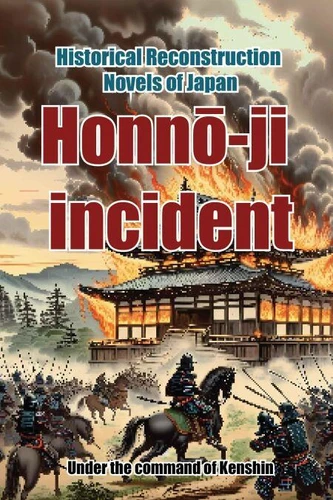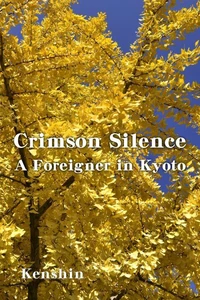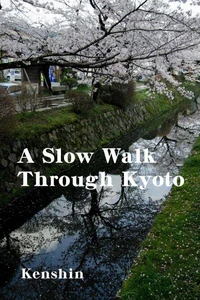Honnō - ji incident. Historical Reconstruction Novels of Japan, #1
Par :Formats :
Disponible dans votre compte client Decitre ou Furet du Nord dès validation de votre commande. Le format ePub est :
- Compatible avec une lecture sur My Vivlio (smartphone, tablette, ordinateur)
- Compatible avec une lecture sur liseuses Vivlio
- Pour les liseuses autres que Vivlio, vous devez utiliser le logiciel Adobe Digital Edition. Non compatible avec la lecture sur les liseuses Kindle, Remarkable et Sony
 , qui est-ce ?
, qui est-ce ?Notre partenaire de plateforme de lecture numérique où vous retrouverez l'ensemble de vos ebooks gratuitement
Pour en savoir plus sur nos ebooks, consultez notre aide en ligne ici
- FormatePub
- ISBN8224362356
- EAN9798224362356
- Date de parution25/09/2024
- Protection num.pas de protection
- Infos supplémentairesepub
- ÉditeurVirtued Press
Résumé
When it comes to the most significant event and mystery that has influenced Japan, aside from the Honno-ji Incident, there is probably none other. From the Edo period to modern Japan, researchers and discussions surrounding this topic, including military chronicles, have been endless, with many speculations emerging. How many are there? From the conspiracies of the imperial court and theories of ambition at the time, to claims of collaboration with Toyotomi Hideyoshi, and even theories suggesting a partnership with Tokugawa Ieyasu during the Edo period, all these are based on insufficient or unreliable historical data.
Unless more convincing evidence appears, they can only be categorized as having some possibility, but lacking credibility. In recent years, the focus of Japanese research has returned to the initial notion of "individual crime, " suggesting that the decision to betray was a personal one. Of course, this "individual" does not imply a solitary act; numerous factors contributed to a loyal retainer, once trusted by Nobunaga, turning into his grave digger overnight.
The magnitude of this transformation is what captivates all enthusiasts of the Sengoku period and historians, driving their relentless research. This novel attempts to restore history from the perspective of "individual crime, " exploring the mindsets of Akechi Mitsuhide and Oda Nobunaga, covering the period from the Koshu Campaign to just before the incident. Why choose this timeframe? There are certainly many discussions and scholarly works about the aftermath of the incident, both in Japan and the Chinese-speaking world.
However, if one wants to focus on the event itself, it is essential to look at it from before it occurred. Many books delve into the possibilities of conspiracy theories surrounding this incident, but I believe the allure of the mystery itself is enough to captivate readers. What is particularly interesting is the psychological transformation of Akechi Mitsuhide throughout his journey. By writing in a novelistic format, we can avoid the somewhat dull topics of academic discussions while guiding readers into a lesser-known world.
This approach offers an easier way for those interested in the Sengoku period to gain insights. I hope this novel, which attempts to restore history, provides readers with another layer of enjoyment beyond the many scholarly works available.
Unless more convincing evidence appears, they can only be categorized as having some possibility, but lacking credibility. In recent years, the focus of Japanese research has returned to the initial notion of "individual crime, " suggesting that the decision to betray was a personal one. Of course, this "individual" does not imply a solitary act; numerous factors contributed to a loyal retainer, once trusted by Nobunaga, turning into his grave digger overnight.
The magnitude of this transformation is what captivates all enthusiasts of the Sengoku period and historians, driving their relentless research. This novel attempts to restore history from the perspective of "individual crime, " exploring the mindsets of Akechi Mitsuhide and Oda Nobunaga, covering the period from the Koshu Campaign to just before the incident. Why choose this timeframe? There are certainly many discussions and scholarly works about the aftermath of the incident, both in Japan and the Chinese-speaking world.
However, if one wants to focus on the event itself, it is essential to look at it from before it occurred. Many books delve into the possibilities of conspiracy theories surrounding this incident, but I believe the allure of the mystery itself is enough to captivate readers. What is particularly interesting is the psychological transformation of Akechi Mitsuhide throughout his journey. By writing in a novelistic format, we can avoid the somewhat dull topics of academic discussions while guiding readers into a lesser-known world.
This approach offers an easier way for those interested in the Sengoku period to gain insights. I hope this novel, which attempts to restore history, provides readers with another layer of enjoyment beyond the many scholarly works available.
When it comes to the most significant event and mystery that has influenced Japan, aside from the Honno-ji Incident, there is probably none other. From the Edo period to modern Japan, researchers and discussions surrounding this topic, including military chronicles, have been endless, with many speculations emerging. How many are there? From the conspiracies of the imperial court and theories of ambition at the time, to claims of collaboration with Toyotomi Hideyoshi, and even theories suggesting a partnership with Tokugawa Ieyasu during the Edo period, all these are based on insufficient or unreliable historical data.
Unless more convincing evidence appears, they can only be categorized as having some possibility, but lacking credibility. In recent years, the focus of Japanese research has returned to the initial notion of "individual crime, " suggesting that the decision to betray was a personal one. Of course, this "individual" does not imply a solitary act; numerous factors contributed to a loyal retainer, once trusted by Nobunaga, turning into his grave digger overnight.
The magnitude of this transformation is what captivates all enthusiasts of the Sengoku period and historians, driving their relentless research. This novel attempts to restore history from the perspective of "individual crime, " exploring the mindsets of Akechi Mitsuhide and Oda Nobunaga, covering the period from the Koshu Campaign to just before the incident. Why choose this timeframe? There are certainly many discussions and scholarly works about the aftermath of the incident, both in Japan and the Chinese-speaking world.
However, if one wants to focus on the event itself, it is essential to look at it from before it occurred. Many books delve into the possibilities of conspiracy theories surrounding this incident, but I believe the allure of the mystery itself is enough to captivate readers. What is particularly interesting is the psychological transformation of Akechi Mitsuhide throughout his journey. By writing in a novelistic format, we can avoid the somewhat dull topics of academic discussions while guiding readers into a lesser-known world.
This approach offers an easier way for those interested in the Sengoku period to gain insights. I hope this novel, which attempts to restore history, provides readers with another layer of enjoyment beyond the many scholarly works available.
Unless more convincing evidence appears, they can only be categorized as having some possibility, but lacking credibility. In recent years, the focus of Japanese research has returned to the initial notion of "individual crime, " suggesting that the decision to betray was a personal one. Of course, this "individual" does not imply a solitary act; numerous factors contributed to a loyal retainer, once trusted by Nobunaga, turning into his grave digger overnight.
The magnitude of this transformation is what captivates all enthusiasts of the Sengoku period and historians, driving their relentless research. This novel attempts to restore history from the perspective of "individual crime, " exploring the mindsets of Akechi Mitsuhide and Oda Nobunaga, covering the period from the Koshu Campaign to just before the incident. Why choose this timeframe? There are certainly many discussions and scholarly works about the aftermath of the incident, both in Japan and the Chinese-speaking world.
However, if one wants to focus on the event itself, it is essential to look at it from before it occurred. Many books delve into the possibilities of conspiracy theories surrounding this incident, but I believe the allure of the mystery itself is enough to captivate readers. What is particularly interesting is the psychological transformation of Akechi Mitsuhide throughout his journey. By writing in a novelistic format, we can avoid the somewhat dull topics of academic discussions while guiding readers into a lesser-known world.
This approach offers an easier way for those interested in the Sengoku period to gain insights. I hope this novel, which attempts to restore history, provides readers with another layer of enjoyment beyond the many scholarly works available.






